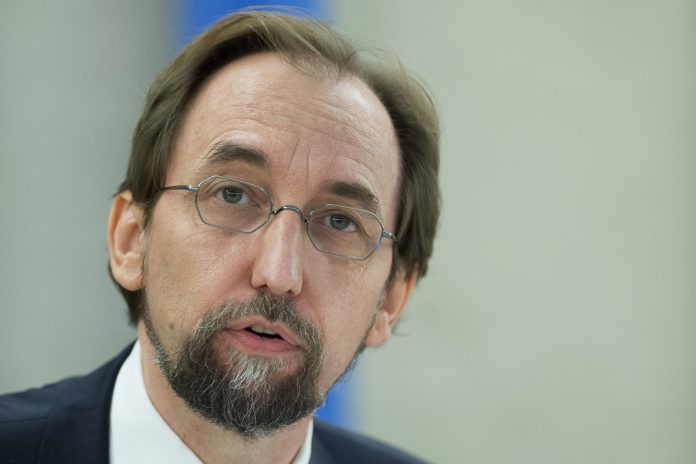The United Nations High Commissioner for Human Rights, Zeid Ra'ad al Hussein, has called for Syria to be referred to the International Criminal Court (ICC) to hold perpetrators to account.
"What we're seeing in Eastern Ghouta and elsewhere in Syria looks like war crimes, and potentially crimes against humanity," Mr. Zeid told an urgent Human Rights Council debate in Geneva on the human rights situation in this besieged rebel enclave.
"Syria must be referred to the International Criminal Court (ICC). Attempts to obstruct justice in order to protect criminals are scandalous", denounced the High Commissioner during this urgent debate organized at the request of the United Kingdom. The UN human rights chief stressed that the perpetrators of these crimes must know that they will be identified and that files will be compiled for their trial.
"The wheels of justice may be slow, but they don't creak," said Zeid. "Let no one think that the perpetrators (of these crimes) will get away with it. Others believed in them and saw themselves as patriots, before they were arrested", recalled the High Commissioner, citing in passing the conviction, more than three months ago, of Bosnian Serb general Ratko Mladic for genocide, war crimes and crimes against humanity.
Eastern Ghouta: despite the truce, strikes continue
The population of Eastern Ghouta is suffering extreme deprivation, with no humanitarian deliveries having been made since November, with the exception of February 14, when a convoy reached 7,200 of the 400,000 people living in the region.
"Despite a rare example of unanimity" in the Security Council with the adoption of resolution 2401 (2018) on February 24, civilians in Eastern Ghouta are victims of air strikes and relentless bombardment.
"Despite a five-hour truce announced by the Russian government to allow for medical and humanitarian aid, the strikes continue," deplored the High Commissioner. "Humanitarian agencies have made it clear that it is impossible for them to deliver aid within a five-hour window, as it can take a day just to pass through the checkpoints".
On the ground, United Nations Children's Fund (UNICEF) teams in Syria and neighboring countries are ready to deliver humanitarian aid. But for the UN agency, the hopes for a humanitarian truce raised by the Security Council resolution "have turned into illusions".
"For children in Syria, nothing has changed, nothing," lamented UNICEF's Director for the Middle East and North Africa, Geert Cappelaere, pointing out that violence has continued in several locations across the country, intensifying in some places and flaring up in others.
In response to this gloomy picture, the Syrian Arab Republic reiterated its opposition to the holding of the urgent debate at the Human Rights Council, believing that it followed an unjustified request. According to the Syrian ambassador, Hussam Edin Aala, such debates encourage "terrorist groups", while on the contrary his government has called on the civilian population to evacuate Eastern Ghouta, the Syrian representative continued.
At the Human Rights Council, the UK has tabled a draft resolution calling for implementation of the Security Council resolution calling for an immediate 30-day ceasefire throughout Syria.
The draft proposed by London calls for the International Independent Investigation Commission on Syria to "urgently launch a full and independent investigation into the recent events in Eastern Ghouta". The British draft resolution is due to be put to the vote of the 47 member states of the Human Rights Council on Monday morning, March 5.


